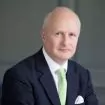Quite frequently, my friends get a bit grumpy with me because my mind has flitted from one point to another without much obvious (to them) connection between the two. Of course there is a link which is clear to me, but I understand that it might be tricky to see it; that a clue might be helpful.
Why that opening? Because somehow, thinking about a recent item in the Law Society Gazette (LSG), my thoughts have gone from experts in civil litigation to the flexibility of not having a written legal code and back again, via a Latin phrase the English translation of which I used in the course of some lazy parenting.
What was the LSG item about? It concerned a decision that an expert in a dental negligence claim, which the claimant had to abandon, should bear costs incurred by the defendant ('Grossly unhelpful' expert ordered to pay £50k wasted costs | News | Law Gazette). Among other things, it was suggested that the person concerned did not in fact have appropriate expertise to give the opinions they did. The article suggested he would have to pay something like £50,000.
That the expert was at risk of having to pick up the tab is not a new concept. That came to the fore as a result of the 2004 case of Phillips v Symes (which I wrote about in the Estates Gazette, 28 May 2005). The Phillips case was an early example of a court giving teeth to the duties imposed by Part 35 of the Civil Procedure Rules 1998 on people taking the role of expert in civil litigation. They are onerous and, if the instruction and duties demand it, can put an expert in conflict with those appointing them.
When I wrote that article for the Estates Gazette in 2005, I observed that, while the Phillips case made it clear that an expert acting in flagrant breach of their duties under Part 35 CPR could be made subject to what is known as a wasted costs order, they could not be liable to their appointing client in negligence for their work conducted in connection with the litigation. That was the law then.
But in Jones v Kaney (2011), the Supreme Court decided that immunity could no longer stand (Jones (Appellant) v Kaney (Respondent)- The Supreme Court; Expert witnesses no longer protected - the Supreme Court | Russell-Cooke). In so deciding, in effect it reversed a legal principle that had been understood for perhaps 400 years. It is true that two Justices of the Supreme Court disagreed, with one observing it was a matter for Parliament. The Jones v Kaney decision is an example of the aforementioned flexibility in action.
And how did I come back to experts again? Well, the Court of Appeal recently considered them again in Griffiths v TUI (UK) Ltd (Griffiths v Tui (UK) Ltd [2021] EWCA Civ 1442 (07 October 2021) (bailii.org)). The claim was about an illness suffered by the claimant while on holiday. He relied on an expert report, about which the defendant raised some questions before trial. For various reasons, the defendant did not put up expert evidence in response. The expert was not required to attend the trial and, therefore, was not cross-examined. The claimant lost the case despite the expert evidence being uncontroverted. The trial judge observed that it was still necessary for the claimant to prove the case and had not. The judge set out a number of deficiencies with the expert report. Among other things, the judge observed that the expert evidence did not consider alternative reasons for the illness, did not give a range of opinion and did not give adequate reasoning for its conclusions. At one point the judge used the word "minimalist" about the report.
I find it hard to believe that, these days, anyone would lightly take on the role of being an expert witness in civil litigation. But these two recent decisions re-emphasise why it is crucial that, before accepting the appointment, the potential appointee understand what they are going to be asked about and to satisfy themselves that they are an appropriate person to give evidence on the issues concerned, and that they fully understand the duties they will accept on a Part 35 CPR appointment.
And the Latin phrase? It is "ipse dixit" and was used several times in the Griffiths judgment when explaining the stance taken by the expert. What does it mean? Roughly, that something is as it is "because I say so" – a phrase many parents utter to a child and probably then immediately lose all credibility. So it could be for an expert.
The content of this article is intended to provide a general guide to the subject matter. Specialist advice should be sought about your specific circumstances.
